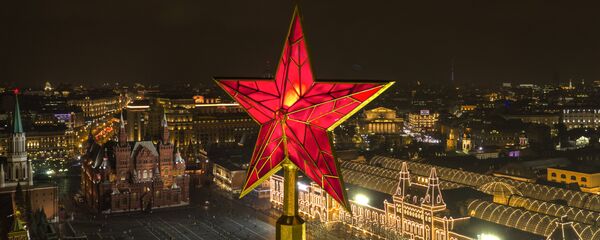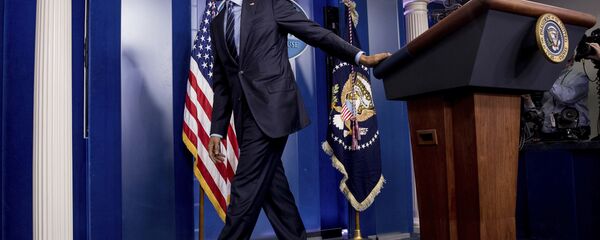"All of that is under consideration," Conway said in an interview with Fox News when asked whether sanctions are going be on the table right away.
The United States has slapped a whole array of sanctions on Russia over the past five years, the German news network Deutsche Welle reported in its article on whether or not these punitive measures would be abolished.
Latest sanctions: for alleged interference in elections
In late December 2016, outgoing President Barack Obama expelled 35 Russian diplomats from the US, calling them spies working undercover. He also imposed sanctions against a number of individuals and companies in Russia, accusing them of "interfering in the US presidential elections."
The penalty applies to Igor Korobov, head of the Russian military intelligence directorate, his three deputies, as well the Russian Federal Security Service. The sanctions were also introduced against Yevgeny Bogachev and Alexey Belan, who were long sought by US authorities on charges of committing crimes on the Internet.
These include the Special Technology Center, a firm called Zorsecurity and the Autonomous Noncommercial Organization Professional Association of Designers of Data Processing Systems, whose lengthy name, American officials said, was cover for a group that provided special training for the hacking, according to the New York Times.
Obama imposed these sanctions simply by amending the existing presidential decree and without getting a go-ahead from Congress, which is why these punitive measures will be easy to lift, Deutsche Welle said, referring to the relevant remarks made by Trump about two weeks ago.
Magnitsky Act
It will be much more difficult for Trump to remove personal sanctions imposed on a group of Russian citizens within the framework of the 2012 Magnitsky Act.
In December 2016, the US Senate and House of Representatives passed the 2017 National Defense Authorization Act (NDAA) which allows the application of the Magnitsky Act worldwide so that Washington could impose sanctions on anyone it deemed ti be engaged in corruption or human rights violations.
"The Magnitsky law was passed by the US Congress, and abolishing the Magnitsky Act will only be possible after Congressmen give the initial green light," Professor Kirk Junker from the University of Cologne told Deutsche Welle.
"Crimean" sanctions
The US, the EU and Canada introduced the first round of specifically targeted sanctions on March 17, 2014, the day after a referendum on Crimea's reunification with Russia.
Restrictions apply to Crimean leaders Sergei Aksyonov and Vladimir Konstantinov as well as Russian Federation Council Speaker Valentina Matviyenko and Deputy Prime Minister Dmitry Rogozin.
Also on the list are an array of politicians and businessmen considered to be friends of Russian President Vladimir Putin, including the brothers Rotenberg and Gennady Timchenko.
The bulk of these sanctions are Crimea-related and were imposed in the form of decrees personally signed by then-President Barack Obama, which is why a new presidential decree is needed to lift them, according to Professor Junker.
Sectoral sanctions: over Donbass
The United States repeatedly expanded its anti-Russian sanctions during the course of the development of the crisis in eastern Ukraine.
Citing Moscow's alleged involvement in the Ukraine conflict, Washington slapped sanctions against separate sectors of the Russian economy. In particular, the restrictions are referred to Russia's financial, energy and defense sectors.
On April 28, 2014, the United States imposed a ban on business transactions within its territory on seven Russian officials, including Igor Sechin, executive chairman of the Russian state oil company Rosneft, and seventeen Russian companies.
In the defense sector, cooperation was curtailed with the Russian state corporation Rostec and the scientific and production corporation Uralvagonzavod, as well as Kalashnikov and Almaz-Antey.
Not all these restrictions have a decree status so they cannot be canceled immediately. For example, the Ukraine Freedom Support Act was approved by Congress in December 2014 and only Congressmen can rescind the document, Deutsche Welle concluded.
Never miss a story again — sign up to our Telegram channel and we'll keep you up to speed!







